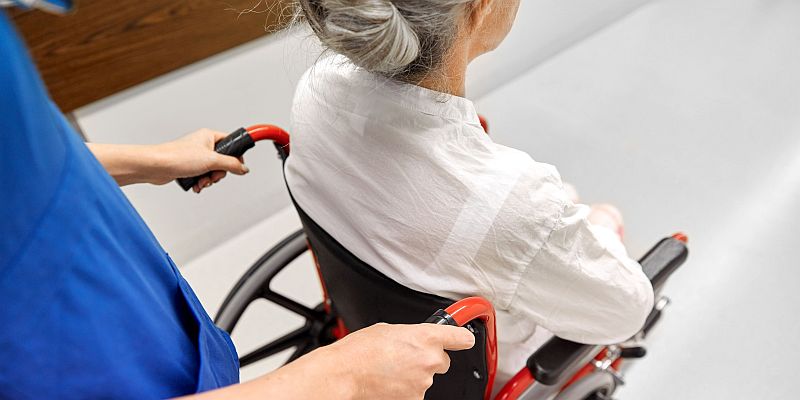Höxter district (red). The new care reform was already passed in the Bundestag in June 2021, but important regulations will not come into force until the new year. The consumer advice center NRW explains what people in need of care and their relatives should now know.
Five percent more for care benefits in kind
Since January 1, 2022, anyone who pays a nursing service for support with personal hygiene, nutrition, mobility or home care has received five percent more per month for non-cash care benefits – but only from care level two.
And this is how the monthly amounts increase:
- Care level two: from 689 euros to 724 euros
- Care level three: from 1,298 euros to 1,363 euros
- Care level four: from 1,612 euros to 1,693 euros
- Care level five: from 1,995 euros to 2,095 euros.
- Ten percent more for short-term care
For short-term care, the benefit amount has been increased by ten percent since January 1, 2022. It is 1,774 euros. So if the care facility submits an invoice for 2,000 euros for short-term care to the care insurance fund, it now pays 1,774 euros instead of the previous 1,612 euros. The difference is borne by the person in need of care. However, rising wage costs could nullify the relief in the future.
Increased home care benefits
Anyone living in a nursing home will be relieved of the so-called “care-related own contribution” from 2022. Because the long-term care insurance now pays a supplement to the care-related own contribution. It increases with the duration of care. This reduces the personal contribution to the care and training costs for people with care grades 2 to 5 in the care home.
The care fund takes care of:
- Five percent in the first year
- 25 percent in the second year
- 45 percent in the third year
- 70 percent in the following years.
With an original personal contribution of 700 euros, the new personal contribution is 665 euros in the first year, 525 euros in the second year, 385 euros in the third year and 210 euros from the fourth year. The long-term care insurance pays the benefit supplement to the nursing home, an application is not required.
Entitlement to transitional care in the clinic
People whose care cannot be secured in any other way after a stay in hospital are entitled to transitional care in the hospital. This has been valid for a maximum of ten days since the end of 2021. The entitlement applies, for example, if home nursing, rehabilitation treatment, short-term care, respite care or day care are not available. Those affected or their relatives should clarify this with the social services of the hospital or with the health insurance company at an early stage.
Further information and links:
More about supplements in nursing homes at: www.verbraucherzentrale.nrw/node/68404
The consumer center NRW has summarized everything about the care reform here: www.verbraucherzentrale.nrw/node/63628
This graphic shows the services available for care at home: www.verbraucherzentrale.nrw/node/64399
Photo: Consumer Center NRW
–


